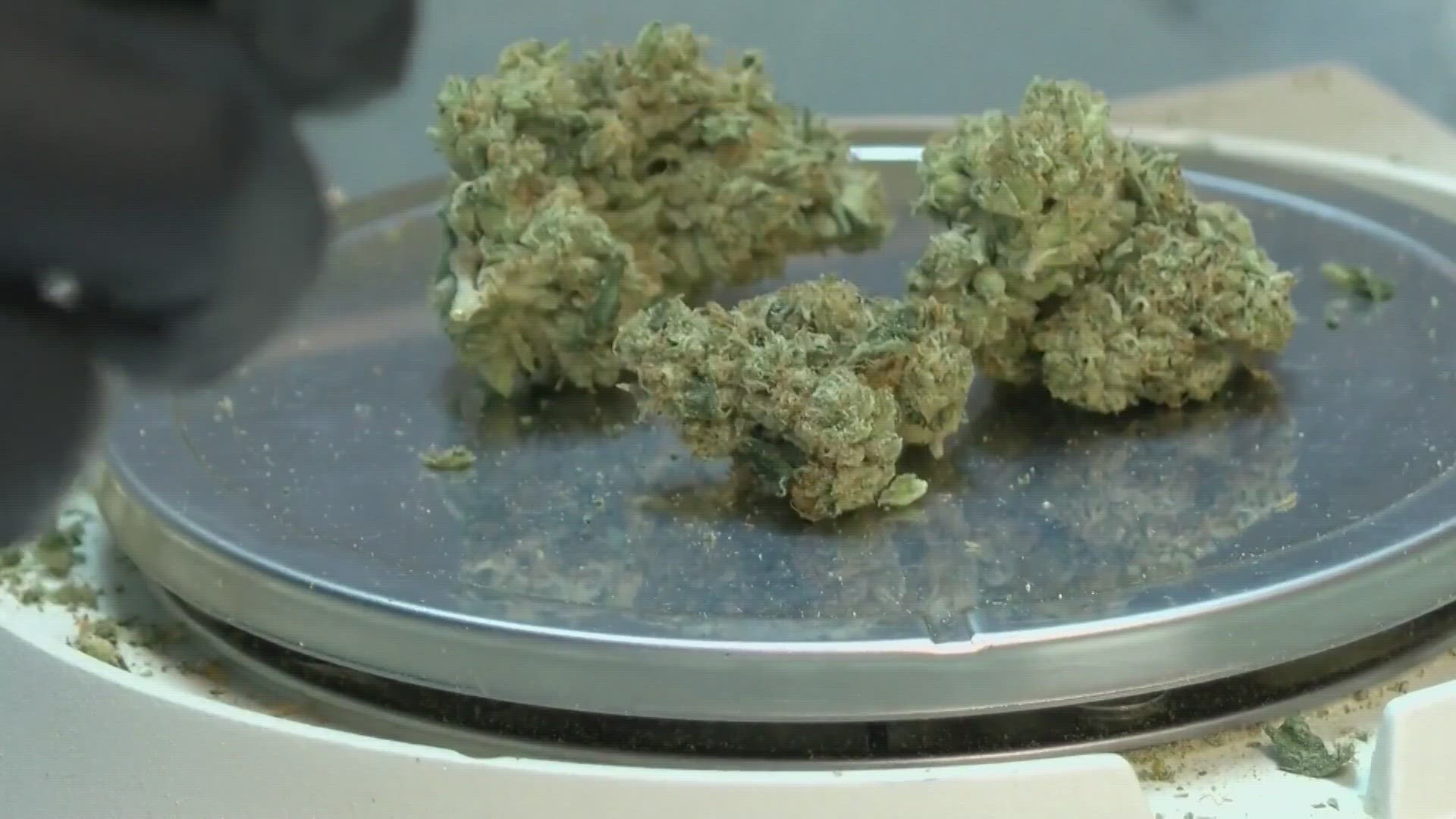OLYMPIA, Wash. — A push to get more cannabis retail licenses into the hands of Black and brown business owners is gaining momentum in the state House.
Data from Washington’s Liquor and Cannabis Board (LCB) shows, roughly 92% of those in the state’s cannabis industry are white.
Since 2020, the Washington state Legislature has been studying how to make its cannabis licensing program more inclusive to Black and brown business owners. According to state data, only 4% of the state's retail cannabis licenses went to Black applicants.
In the early 2000s, Mike Asai and Peter Manning owned medical cannabis dispensaries in Seattle. However, in 2015 when recreational cannabis became legal, they, and dozens of other legitimate business owners, were forced to close and reapply for new retail cannabis licenses.
“To be the first downtown medical cannabis dispensary, and to be unjustly shut down and cut out -- it's been painful and traumatic,” Asai said. Asai founded the former medical cannabis dispensary, Emerald City Collective. He is now with the organization, Black Excellence in Cannabis.
“When we applied for licenses, we weren't getting them," said Manning, founder of Bella Sole, which was one of the first Black-owned medical cannabis dispensaries in Seattle. "It was like there were 50 different reasons why you didn't qualify. We didn't have people that cared, at that time, about equity."
Last year KING 5 brought Asai and Manning’s concerns to the LCB. Board member Ollie Garrett was asked if he considered the state's rollout of its cannabis program a success or a failure.
“I would call that a failure, a missed opportunity,” Garrett said in 2022. “Could it have been done differently in the beginning? Yes. But this was a new industry. Who knew, who thought about inclusion and Blacks being left out?”
“It shined the spotlight," Manning responded. "I was like, 'Oh, my God, I feel validated.'"
Legislation would add more licenses
Behind the scenes, state Senator Rebecca Saldaña had been discussing the LCB's "failure" for years.
“[The Washington Cannabis Program] really set it up so that the people that can participate were people that had deep pockets or access to a lot of money,” Saldaña said. “And so what we said is we weren't gonna do any more new licenses until we looked at social equity.”
Saldaña is sponsoring legislation requested by the LCB to add roughly 100 retail licenses for social equity applicants. The licenses would be mobile -- meaning they can be used in any city or county that allows cannabis sales.
“Once they get the license, they have a time period to be able to find the location, because otherwise you're paying rent, trying to build it out, and not making any income during that time period," Saldaña said. "So this gives them a chance to have a little bit more flexibility."
"Oversaturated"
The bill would issue 100 new producer licenses for those who want to grow and sell cannabis products. Some have testified the addition of so many new licenses could disrupt the existing market.
“The 7.8 million Washingtonians can only consume so much cannabis and the market can only grow literally within the state borders,” said Adam Espino Jr, with the Craft Cannabis Coalition in testimony in front of the Senate Ways & Means Committee on Feb 13.
“I hear ‘oversaturation,' (and) I hear fear, you know, which is natural, but I also hear that, that they don't really get it," Saldaña said. "What we're looking at is creating a pathway to opportunity."
Licensing priority to those impacted by the war on drugs
The LCB implemented several changes to its social equity program last year.
Applicants with prior drug arrests or who lived in an area with historically higher drug conviction rates will get licensing priority in the future, even without the passage of Saldaña’s bill.
The LCB voted last year to allow roughly 40 unused or revoked cannabis licenses to be given to social equity applicants. However, many of those licenses are currently in locales that do not allow cannabis sales.
Saldaña’s bill would make those licenses mobile, and add an additional 52 retail licenses to the social equity program. In addition, the LCB changed the scoring rubric for candidates, to give more weight to applicants with prior drug arrests, or those who previously owned a medical cannabis dispensary.
It’s an opportunity that puts people like Asai and Manning at the front of the line.
“If I was Black, I have an eighth of weed, I'm going to jail," Manning said. "If I was white, I have an eighth of weed, it gets dumped on the ground and I would go on about my business. And that was evident because of the arrest rate. It was four to one in a population that is 2% Black and 97% white. We can see that there's some bias there."
The application process for the social equity program opened on March 1.
“To finally have a chance [to get a retail cannabis license] after over seven years, to be able to apply again for retail felt good, but at the same time, you know, it's it's also painful to still be in this position,” Asai said.
“I'm this close," Manning said. "But will I make it? I don't know. But do I, do I deserve it? Absolutely.”
Social equity applicants can apply for a special license until March 30. To start an application and view a list of required documents, visit the LCB's website.
For more information on the current Social Equity Program, click here.

